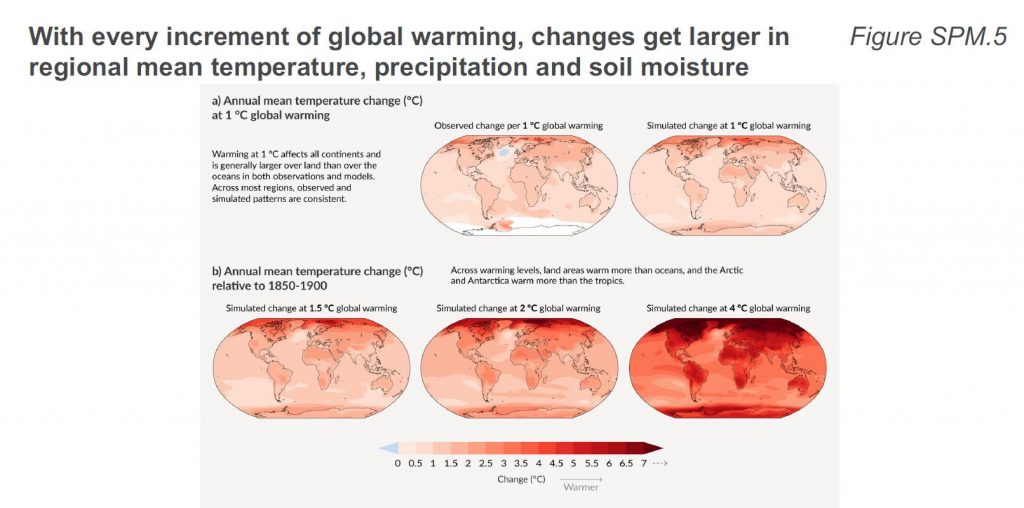In July, during an intense heatwave, Cyprus suffered a deadly forest fire that was the worst to hit the island in decades, killing four people and burning an area of around 55 sq km. Cyprus was not alone in suffering from extreme weather events this summer. In fact, the summer of 2021 was one of the most catastrophic seasons of extreme weather events in memory, with wildfires raging in the Mediterranean, the US West Coast, in Canada and in Russia, devastating floods in Western Europe, Africa, India and China, and severe heatwaves and crippling drought affecting countries across the globe.
Against this backdrop, the International Panel on Climate Change (IPCC) published on August 9th the first in a series of documents that will be released in the coming months as part of the IPCC’s sixth Assessment Report. This report, which is the result of a collaboration of 234 scientific authors and has been signed off by 195 countries, brings together the cutting edge of climate science, sets out how humans are affecting the planet, and explores scenarios of what may lie in the future.
According to the IPCC, many of the changes observed in the current climate are unprecedented in thousands, if not hundreds of thousands of years, while some of the changes already set in motion, such as sea level rise, are irreversible over hundreds to thousands of years. Crucially, the scientific evidence presented in the report attributes extreme weather events on human activity and human-caused climate change with more confidence than ever before. It makes for an exceptionally worrying read.

Within the next 20 years, the planet is expected to reach or exceed the 1.5°C warming limit set by the the 2015 Paris Agreement, regardless of how radically greenhouse gas emissions are reduced. The findings of this latest report are clear: if humanity is to avoid the worst of the consequences of a warming world, governments across the world must take drastic action. This latest IPCC report is a wake-up call that brings the issue of climate change back to the top of the agenda for governments preoccupied by the COVID-19 pandemic and domestic concerns.
In Cyprus, we can expect that the changing climate will continue to make extreme weather events more frequent, with hotter and drier weather, reduced rainfall, disastrous forest fires, and flooding especially in coastal areas. Climate change is an extremely urgent issue, as the latest IPCC report shows, and it should be made a priority across all government policies. Stricter policies and measures must urgently be put in place to reduce emissions and adapt to climate change. Crucially, these need to take an ecosystem approach and operate synergistically with policies for the protection of biodiversity. Such nature-based solutions, like the restoration of wetlands, sustainable agricultural solutions and protection of forests, provide multiple benefits for people, biodiversity and the climate.




